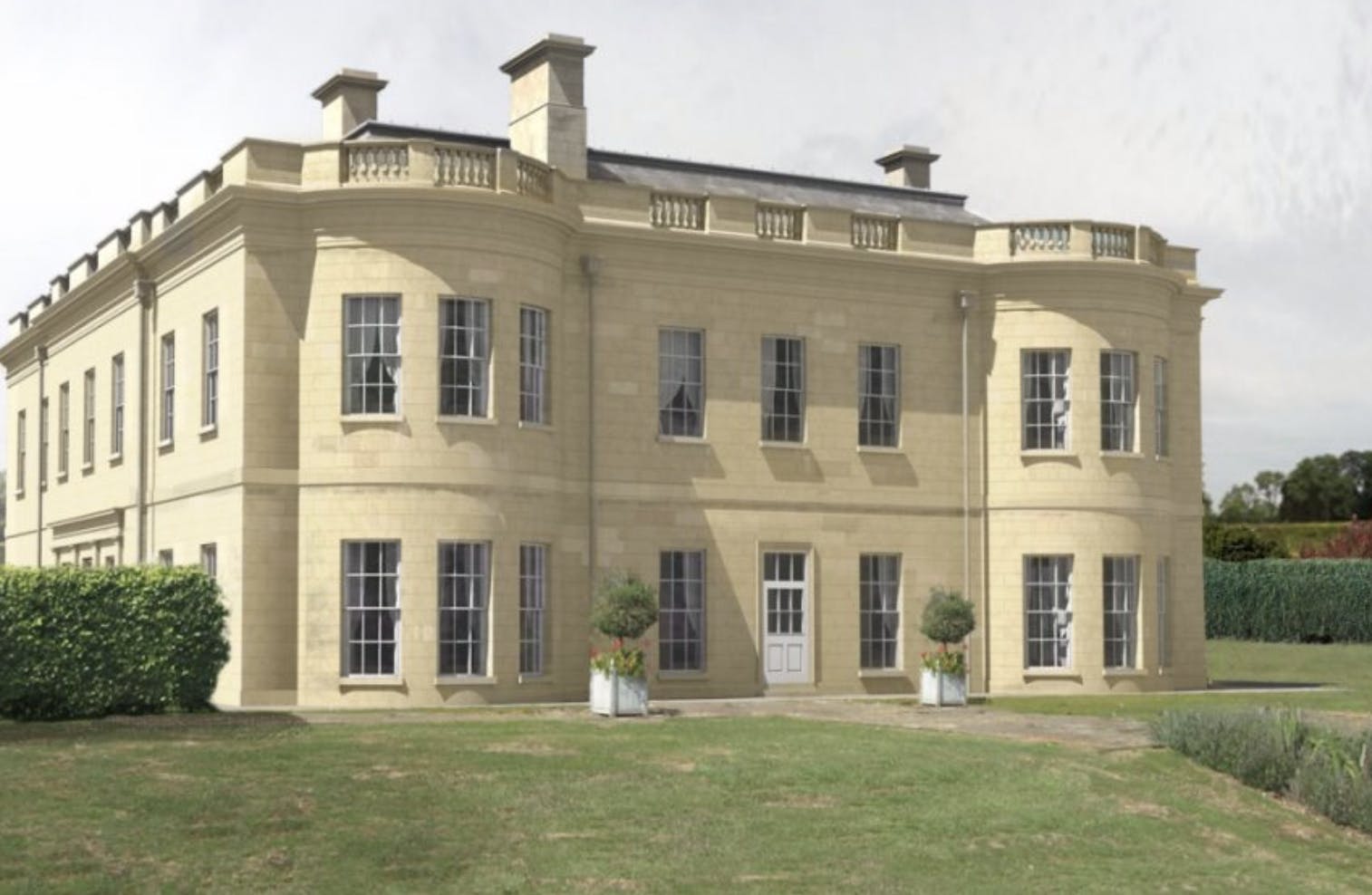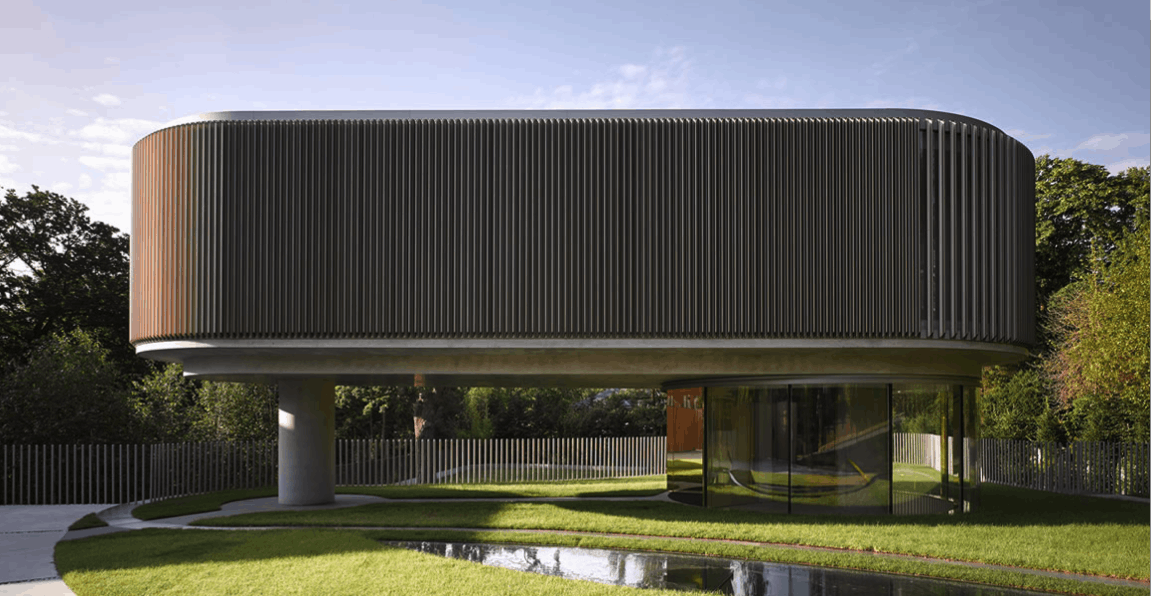An extraordinary and little-noticed change has swept over the countryside in the past 10 years. Building a new house used to be a minority interest, but now as many as half of the people looking to buy a house consider building a new one from scratch. Estate agents and property-search agents report that the chase is on to find the ideal site for competing buyers.

What is driving the change is clear. The reasons for building a new house are just so compelling.
For a start, it can be quicker and easier for architects and builders to create a new house than to stitch new fabric into old, and to connect old plumbing, wiring or heating systems with fresh ones.
It can be cheaper than adapting or enlarging an existing house too, with building works on an existing house generally attracting VAT at 20% compared to knocking down and replacing a house VAT free.
Quite apart from financial factors, which will be covered in Part Two of this Guide, building a new house opens new possibilities of where to live. You can look for a perfect location then build the perfect home. ‘People build because there is nothing on the market like the house they want,’ as one property agent puts it.
Above and beyond all of this, there are few pleasures as profound and enduring as commissioning a brilliant architect to create an original home that matches your vision.
But as soon as you decide to build a new house up pops a big question. How on earth do I start?
Should you begin by talking to an architect, or perhaps a builder, or maybe a house-developer who offers a ‘one stop shop’ of designing and building the house? And who can be relied on to say how long the project will take, how much it will cost and who else you will need to build the house?
Where not to start
“Developers’ profit margins can be large or opaque, so you may end up getting less of a house for your money than you could”
It is seldom best to start a project by talking to or engaging builders. Honest and reliable they may be, but their goal is to make as much money from your project as they can, and shift as many of the risks of the project off their plate and on to yours. So their advice on what kind of house you should build, what it will cost and who can best help you create it is unlikely to be as reliable as the advice from a qualified professional.
House ‘developers’ can offer an all-in-one solution from designing your house right down to planting your garden. Their appeal is simplicity. This suits clients who want a ‘pret-a-porter’ house and want almost nothing to do with the project from start to finish apart from pay the bills.
But there are disadvantages. Developers’ profit margins can be large or opaque, so you may end up getting less of a house for your money than you could by engaging your own team of specialists to build the house.
Just as important, developers are usually limited in the designs they offer: they can best protect their profit margins by repeating a design formula or at least limiting your options. So you can end up with a ‘product’ rather a bespoke home, which rather defeats the object of creating a home to suit your taste and every preference. Lastly, very few developers produce houses as well designed as those created by independent designers. This qualitative difference is often reflected in the sale price of houses.
Where to start

So where do you start?
In most cases it is an architect you will want to meet first. It can, though, be a planning consultant or quantity surveyor—a specialist in buildings costs—who is better placed to answer critical questions about the possibility of building the house you have in mind on the site you have found or about the likely expense of your project.
Next question: how do you know which particular architect, planning consultant or quantity surveyor is best suited for your project? This can take time and a lot of research. And this is where RedBook comes in. We give clients independent advice tailored to each project and client on the most suitable architects, planning consultants or quantity surveyors, and the best steps to launching a project.
Top Tips
-
- It usually pays to meet more than one architect, and sometimes several. Their fees vary greatly for a start. The size of budget that each architect is used to handling differs greatly as well. So you will want to be sure your chosen architect matches your parameters. Of course, architects’ designs and ideas about to how to make the most of a site also vary enormously—they are creative. Yet none of these differences between architects can be discovered by simply Googling. At RedBook we know the differences, and have advised on many, many dozens of projects over the past 10 years for clients wanting to create new houses of every different type and scale, saving them time and minimising the risk of expensive mistakes. (When you come to meet architects, see the RedBook Guide on “Awkward Questions to ask your Architect”).
- Architects rarely, if ever, charge for a first meeting but most charge for producing initial designs or sketches.
- It is helpful to collate photos of houses and designs for houses you love, whether online, for example in a Pinterest board, or as magazine cuttings so you can share these with the architects you meet. Be careful though to edit your collection as you go along. You can get lost in too large a number of images, and many people’s taste shifts and evolves as time goes on.
Landscape designers & interior designers – Don’t Wait
“Possibly some of the best advice that RedBook can give”
Possibly some of the best advice that RedBook can give to clients who are launching a new-build project is to move on swiftly after choosing an architect to appointing a landscape/garden designer, and well before the architect has developed fixed ideas of the house’s design.

The reasons are simple. Landscape/garden designers look at sites with different eyes from architects, and with a special sense for the relationship between a future house and the surrounding grounds. Landscape/garden designers are particularly skilled, too, at making the most of topography as well as assessing the views from the new house and approaches to it.
So they can contribute crucial ideas to architects about the best position for the house and its orientation. They challenge architects creatively, frequently improving designs.
It is then equally valuable to engage an interior designer at an early stage. They have a highly developed feel for how people actually live in houses, the use of individual rooms and the flow from one room to another. They also understand, usually better than anyone, how the potential placement and scale of furniture dictate so much of a room’s design—from the positioning of windows and fireplaces to the arrangement of doors. This thinking should inform the house’s design at a very early stage. And it is a terrible missed opportunity to bring in interior designers only when the house is almost built to choose the curtains and cushions. Most architects will welcome with open arms the appointment of an interior designer at an early stage of a project.
What difference does a project manager make?
Building projects are notorious for causing headaches, so how can avoid the all-too-common nightmares of delays and cost overruns?
The magic answer often lies in engaging a project manager.
A project manager works for you and no one else. Their job is to avoid headaches, ensuring you get the house you want and that it is completed as near as possible on deadline and on budget.
They achieve this by anticipating problems, ensuring a timely flow of information between the many members of the project team—from the architects right down to the team laying the foundations—and frankly also by managing you, the client, by making sure you have the information and forewarning you need to make critical decisions on schedule.
By no means every new-house project needs a project manager, nor does every budget stretch to one. Sometimes architects are every bit as good at driving a building project forward as a project manager. However, an excellent project manager is often the secret to a successful low-stress, smoothly delivered new house.
RedBook also advises clients on the ideal project manger for their needs.

Top Tips
-
- Project managers vary greatly in their skills and approach. Be sure to choose one who has substantial experience of projects that are similar to yours in terms of scale, style and budget.
- Project management is a relatively new profession. It has grown up because of the increasing complexity of building projects and the resulting need for proper and careful co-ordination of the many consultants and building specialists. But because project managers are relatively new as a profession, and because their role used to be carried out by architects, it remains the case that a fair number of architects are suspicious to the point of strongly resistant to the idea of their client hiring a project manager.
- Delays during the actual building of the house generally means not only frustration for you but also loss of momentum for all those involved in the project—as well as more cost. It takes money to keep builders on site even if they are not doing much, because they have ongoing site-management costs (known as ‘prelims’) such as the rental on their site offices. Again, if you have to stop the project altogether for a period it takes even more money to clear the builders off site and then get them back again. So the better your project is planned from the outset, and the smoother it runs, the less likely it is that you will face major budget overruns.


